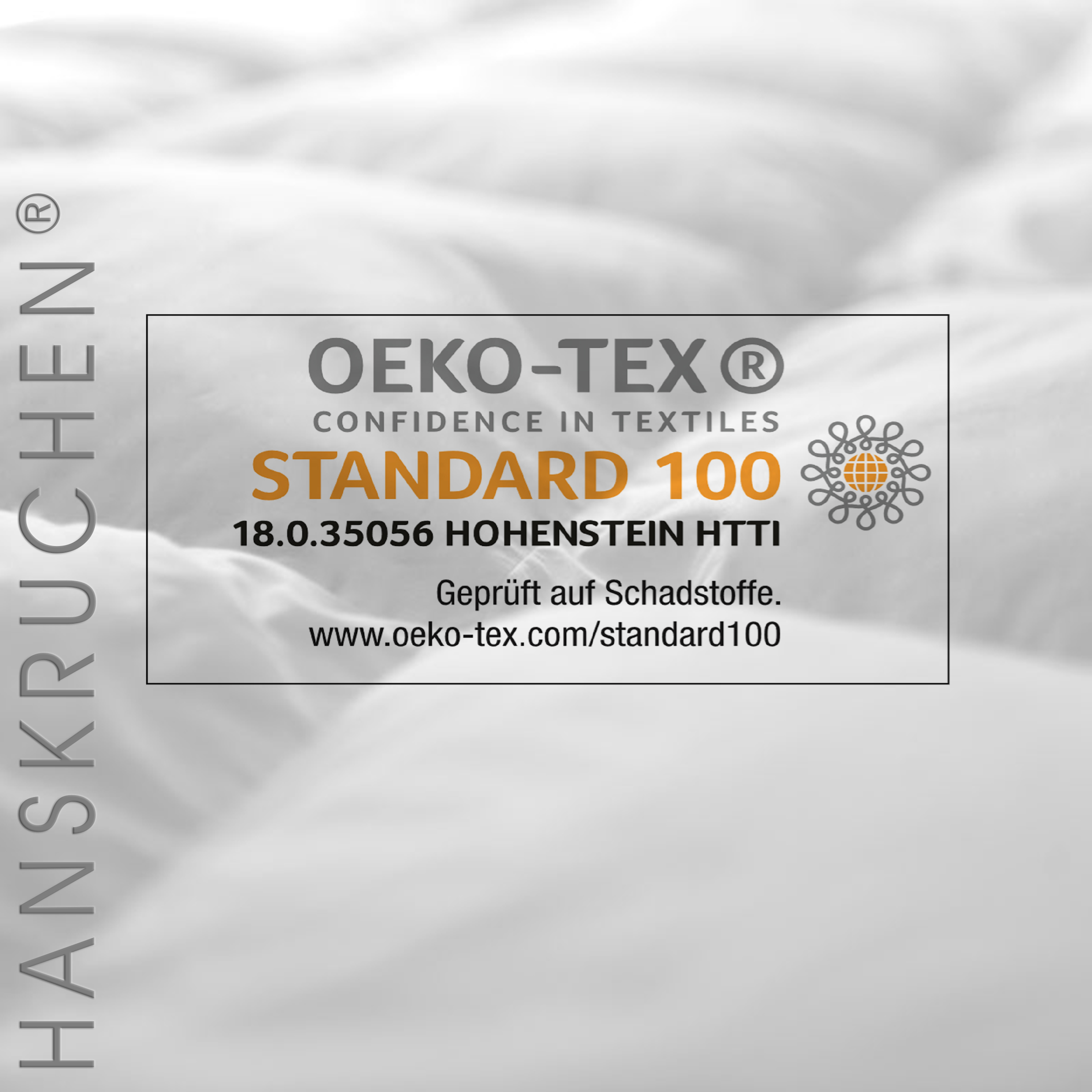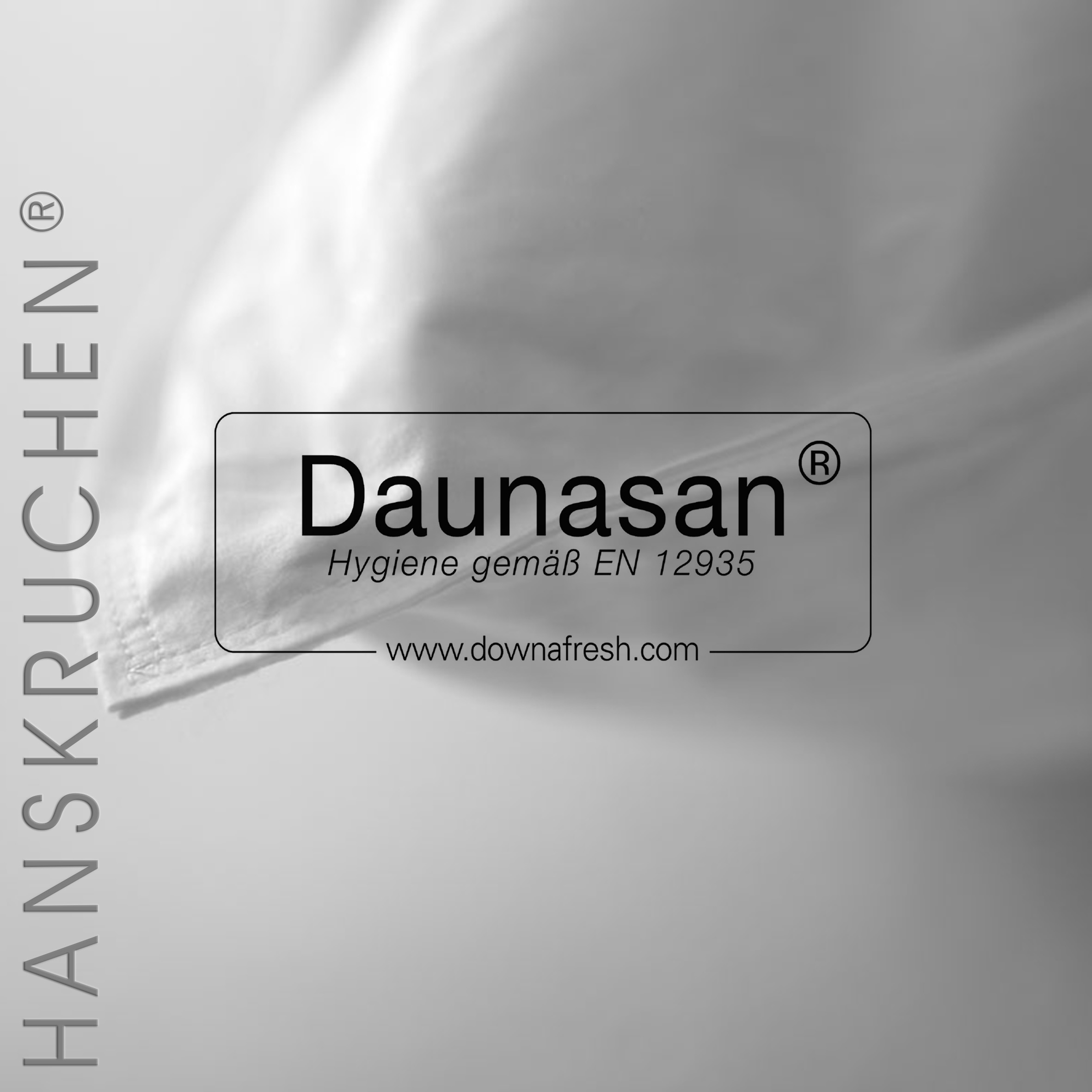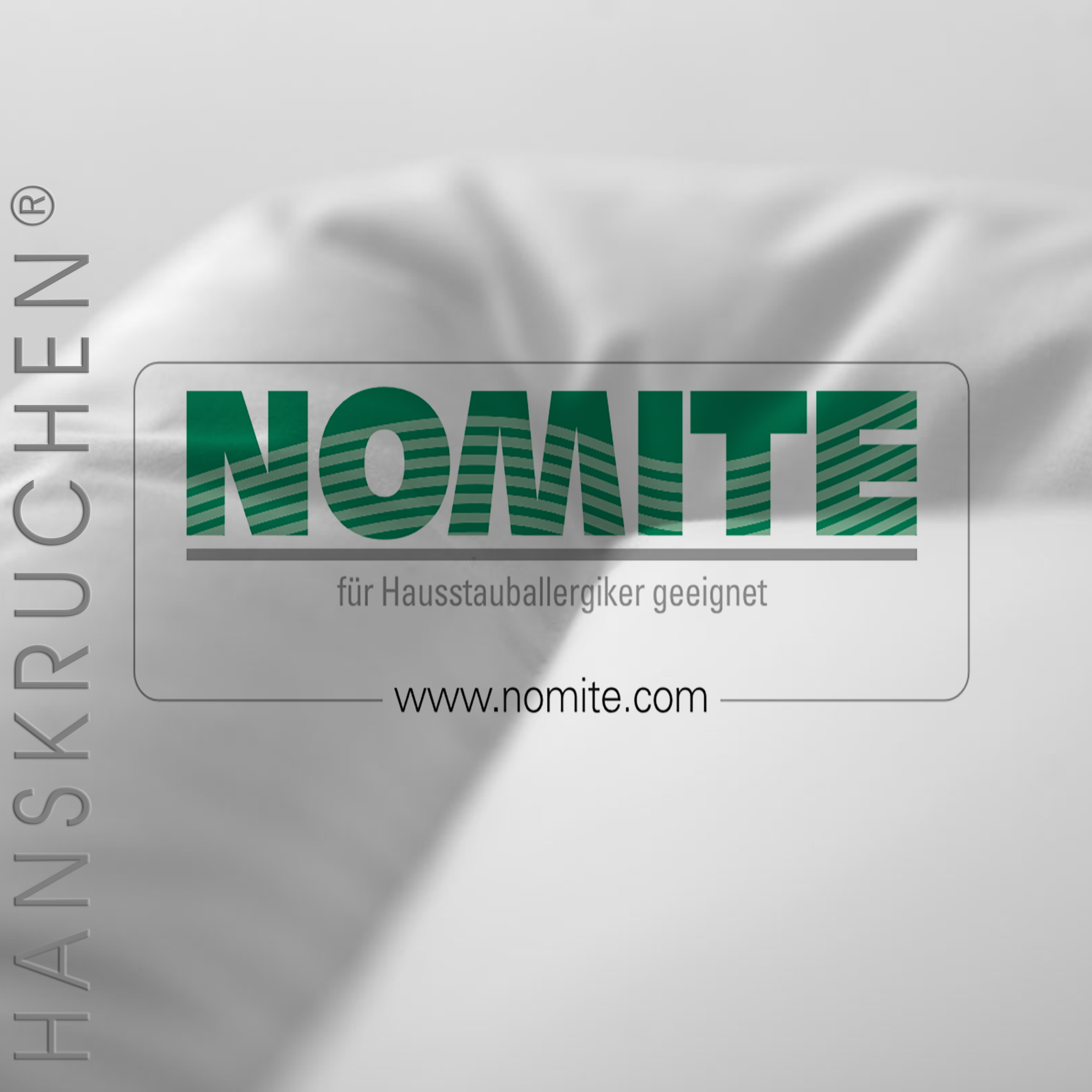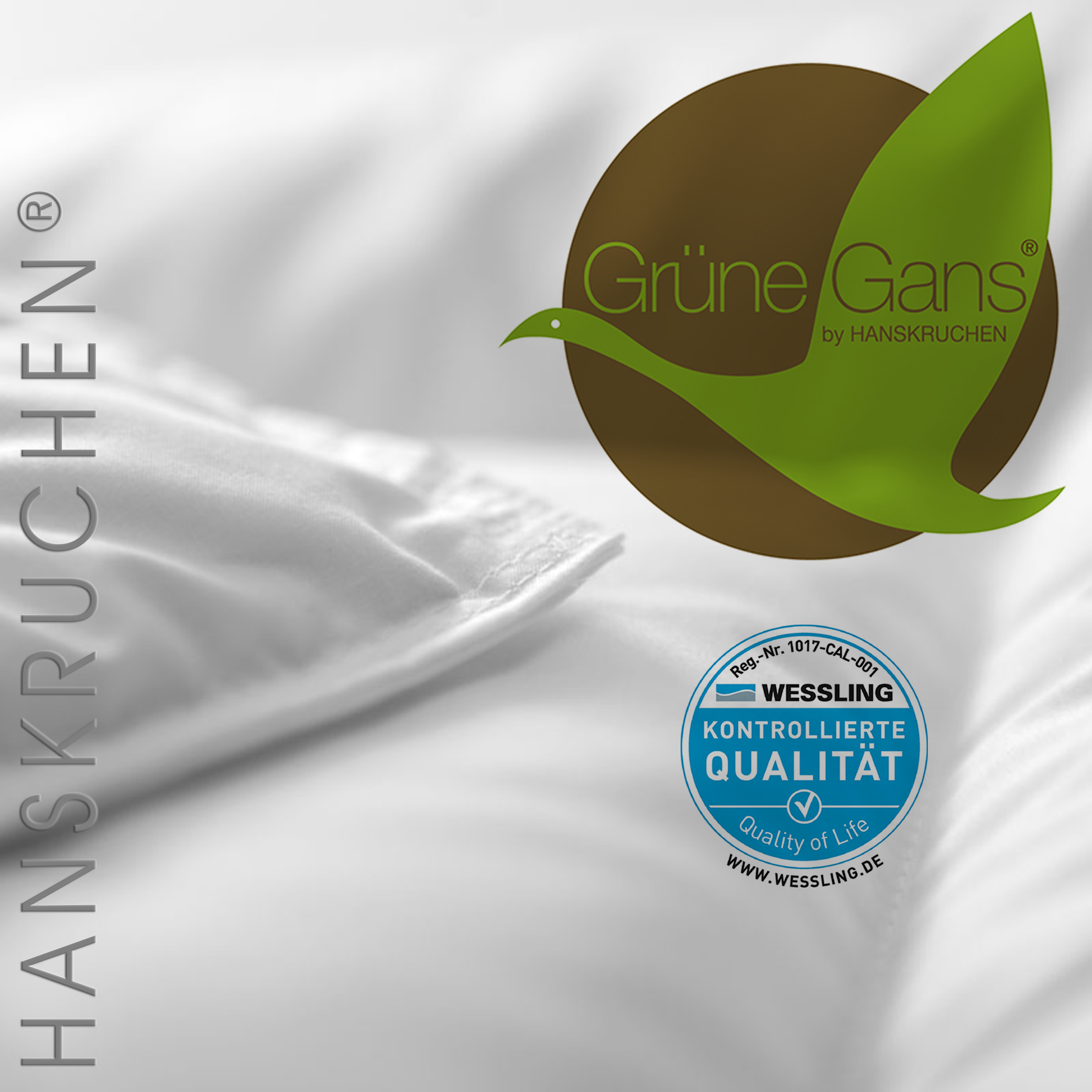Our Certifications

Oeko-Tex Standard 100 is an international product testing system for textiles.
It has four product classes, which differ in the amount of residual chemicals they permit. The classification does not appear on the label. Our supplier has opted to certify all its products in accordance with the strictest requirements for Class I.
The Class I standard specifies very low limit values for, among other things:
- formaldehyde (can cause allergies and was added by the US to the list of carcinogens)
- heavy metals (can cause eczema and damage internal organs and the central nervous system)
- pesticides (can affect the nervous system, internal organs and fertility)
- aromatic hydrocarbons (perfume allergies and disorders of the nervous system)
It has four product classes, which differ in the amount of residual chemicals they permit. The classification does not appear on the label. Our supplier has opted to certify all its products in accordance with the strictest requirements for Class I.
The Class I standard specifies very low limit values for, among other things:
- formaldehyde (can cause allergies and was added by the US to the list of carcinogens)
- heavy metals (can cause eczema and damage internal organs and the central nervous system)
- pesticides (can affect the nervous system, internal organs and fertility)
- aromatic hydrocarbons (perfume allergies and disorders of the nervous system)

All of our down products are certified with "Downafresh Greenline", which guarantees that the down/feathers contained in the product is completely clean. The raw feathers are washed in accordance with the strictest European hygiene requirements and dried at a temperature of more than 212 degree Fahrenheit / 100°C, which guarantees the removal of: the H5N1 strain (avian influenza), keratin (down and feather scales), bacteria and mould, soap residues as well as other organic residues.
For bedding products labelled with Downafresh greenLine only fillings are employed which have been thoroughly washed with water and dried at temperatures of at least 100° C in order to meet the hygienic requirements defined in the European standard EN 12935.
During the processing of such feathers and down, only environmentally compatible detergent agents are used, preserving the natural properties of the material. Certified manufacturers are obliged to have their products tested at an independent testing laboratory to make sure that all requirements for hygiene, cleanliness and environmental guidelines are met.
For bedding products labelled with Downafresh greenLine only fillings are employed which have been thoroughly washed with water and dried at temperatures of at least 100° C in order to meet the hygienic requirements defined in the European standard EN 12935.
During the processing of such feathers and down, only environmentally compatible detergent agents are used, preserving the natural properties of the material. Certified manufacturers are obliged to have their products tested at an independent testing laboratory to make sure that all requirements for hygiene, cleanliness and environmental guidelines are met.

The NOMITE certification is the consumer's guarantee that the down product cannot harbor house dust mites.
The shells are woven so tightly that neither house dust mites themselves nor their food, flakes of human skin, can penetrate it. It is common believe that people are hypersensitive to down and feathers, but the actual culprit is usually the small, yet very irritating house dust mite.
The symptoms of a house dust mite allergy remind of what is usually experienced in connection with hay fever and asthma: swollen and itchy eyes, stuffy or runny nose, sneezing, cough or respiratory difficulties. House dust mites have optimum conditions in bedrooms with a temperature of 62 to 89 °F and high air humidity, and it is enzymes in their feces that cause allergies. A house dust mite can excrete 200 times its own weight in feces per day.
The shells are woven so tightly that neither house dust mites themselves nor their food, flakes of human skin, can penetrate it. It is common believe that people are hypersensitive to down and feathers, but the actual culprit is usually the small, yet very irritating house dust mite.
The symptoms of a house dust mite allergy remind of what is usually experienced in connection with hay fever and asthma: swollen and itchy eyes, stuffy or runny nose, sneezing, cough or respiratory difficulties. House dust mites have optimum conditions in bedrooms with a temperature of 62 to 89 °F and high air humidity, and it is enzymes in their feces that cause allergies. A house dust mite can excrete 200 times its own weight in feces per day.

Hans Kruchen is certified with the "Gruene Gans" ("green goose"), which guarantees that ducks and geese are being humanely raised. "Green Goose" has been established by the independent Institute of Westling, Germany and is registered under # 1018-CAL-001.
Hans Kruchen is a member of VDFI, the Association of the German Down and Feather Industry and EDFA (European Down and Feather Association), which requires to hold to a traceability standard - knowing exactly where the animals come from.
As a family business we are in direct contact with our suppliers, and even visit the farms personally: we walk the walk.
Hans Kruchen is a member of VDFI, the Association of the German Down and Feather Industry and EDFA (European Down and Feather Association), which requires to hold to a traceability standard - knowing exactly where the animals come from.
As a family business we are in direct contact with our suppliers, and even visit the farms personally: we walk the walk.

Hans Kruchen in Germany is a traditional, family run factory which produces down blankets and pillows in Germany.
Their buyers know every farm (and, farmers!) personally and guarantee that all raw material that is being used for their products are harvested cruelty free and come from farms where the animals are being raised humanely.
Furthermore, Hans Kruchen is a member of EDFA (European Down and Feather Association), which requires to hold to a traceability standard - knowing which farms the animals come from. Just as important is the way the down is being washed and treated: environmentally friendly and according to the latest bio technical standards.
Their buyers know every farm (and, farmers!) personally and guarantee that all raw material that is being used for their products are harvested cruelty free and come from farms where the animals are being raised humanely.
Furthermore, Hans Kruchen is a member of EDFA (European Down and Feather Association), which requires to hold to a traceability standard - knowing which farms the animals come from. Just as important is the way the down is being washed and treated: environmentally friendly and according to the latest bio technical standards.

GOTS - Global Organic Textile Standard
When you see this certificate in combination with duvet covers, it means that the product carries the prestigious GOTS-label.
The Global Organic Textile Standard (GOTS) is the world's leading textile processing standard for organic fibers, including ecological and social criteria, backed by independent certification of the entire textile supply chain. The aim of the standard is to define globally recognized requirements, that ensure the organic status of textiles, from harvesting of the raw materials through environmentally and socially responsible manufacturing all the way to labeling in order to provide credible assurance to the end consumer.
The consensus of the International Working Group was that a clear and unambiguous understanding of the content required the Global Organic Textile Standard itself to focus on compulsory criteria only. The standard covers the processing, manufacturing, packaging, labeling, trading and distribution of all textiles made from at least 70% certified organic natural fibers.
When you see this certificate in combination with duvet covers, it means that the product carries the prestigious GOTS-label.
The Global Organic Textile Standard (GOTS) is the world's leading textile processing standard for organic fibers, including ecological and social criteria, backed by independent certification of the entire textile supply chain. The aim of the standard is to define globally recognized requirements, that ensure the organic status of textiles, from harvesting of the raw materials through environmentally and socially responsible manufacturing all the way to labeling in order to provide credible assurance to the end consumer.
The consensus of the International Working Group was that a clear and unambiguous understanding of the content required the Global Organic Textile Standard itself to focus on compulsory criteria only. The standard covers the processing, manufacturing, packaging, labeling, trading and distribution of all textiles made from at least 70% certified organic natural fibers.


